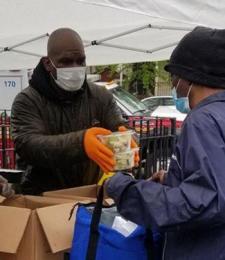In a Worldwide Health Crisis, Lessons From Resilient Communities

"The RWJF Culture of Health Prize honors communities—urban, rural, tribal, large or small—that are beacons of hope and progress on creating places that enable health and well-being for all.
RWJF recognizes Culture of Health Prize winners for their broad definition of health and strong collaboration between community partners and residents, and across many sectors and levels of power. In a Culture of Health Prize community, those facing problems participate in shaping solutions. These communities commit to sustainable systems change and policy oriented long-term solutions. They create conditions that give everyone a fair and just opportunity to be as healthy as possible. They use data to measure and share progress and results.
Throughout 2020, winners use the networks they’ve built and strategies they’ve created to tackle the coronavirus and America’s reckoning with racial justice. We drew lessons and inspiration from these communities. In upcoming posts, we’ll share how several Prize winners have put addressing systemic racism at the center of their work to promote health for all and how in other Prize communities, young people are forging networks, leading by example and finding new ways to advance health equity.
In this post, we highlight five examples of how Prize-winning communities—the Bronx, N.Y.; Lake County, Colo.; Santa Monica, Calif.; Shoalwater Bay Indian Tribe of Washington; and Spartanburg County, S.C.—are responding to COVID-19. They shared their experiences as part of a virtual panel session of the Culture of Health Prize learning event in October 2020."

